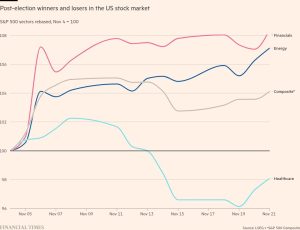Italy seeks to raise more windfall taxes from companies
Unlock the Editor’s Digest for free
Roula Khalaf, Editor of the FT, selects her favourite stories in this weekly newsletter.
Giorgia Meloni’s government will seek to raise more taxes from companies currently earning windfall profits, as Rome struggles to plug a budget deficit that has raised alarm bells in Brussels.
Italian finance minister Giancarlo Giorgetti said Thursday that the upcoming budget “will require sacrifices from everyone”. He did not clarify whether that meant increased tax rates or how they planned to avoid a repeat of last year’s failed attempt to slap banks with a levy on windfall profits.
“There will be a general call for everyone to contribute, not just banks,” Giorgetti said. “We’re all part of a country that has been called to put its accounts in order . . . and everyone must contribute.”
He mentioned defence companies as possible targets, noting that they had been doing extremely well owing to growing conflict in the world, like Russia’s war in Ukraine.
“Paradoxically, today, one could say that with all these wars, companies that produce weapons are doing particularly well.”
Share prices of Leonardo, the state-owned Italian defence company, fell 2.56 per cent just after the minister’s comments, while bank stocks also fell slightly.
“There won’t be a repeat of the narrative or a discussion on banks’ extra profits because at that time, banks were making extra profits,” he said in reference to last year’s surprise move put forward in August and then significantly watered down after bank shares tanked.
Italy is under intense pressure to raise additional revenues to bring its deficit — projected to be 3.8 per cent this year — down to the EU target of 3 per cent. Meloni has so far resisted to cut back on electoral promises that require extra spending, including plans to grant a €100 Christmas bonus to low income families. Her government says it is still on track to reach 3 per of GDP by 2026.
In recent weeks, government officials have held talks with banks, insurance companies and other financial companies about raising more revenues, sparking speculation that companies were under pressure to make “voluntary contributions” to public coffers.
Giorgetti on Thursday dismissed such suggestions, saying: “Companies don’t engage in charity, so voluntary contributions don’t exist.”
The Italian Banking Association said last week that it was evaluating “further measures that may make greater liquidity available for the state budget”.
It added that such measures should be temporary and not be applied retroactively “so as not to penalise the competitiveness of banks operating in Italy” compared with their European rivals.
The Italian parliament is also set to approve a tax amnesty for small businesses to encourage them to declare incomes they received between 2018 and 2022 which would be taxed at a discounted rate.
Participants in the so-called “repentance scheme” will also be obliged to commit to pay a fixed amount of taxes on their expected earnings for the next two years — regardless of how much they actually earn.
Meloni has long vowed to improve the tax system, which she said this year should not “oppress families with obtuse, incomprehensible rules, and an unjust level of taxation that often does not correspond to the level of services that the state provides”.
However, critics, including members of the opposition Democratic party, have described the amnesty schemes as a reward for tax evaders and say it will incentivise further cheating.
Analysts also warn that the measures may be poorly received in Brussels, where Italy is expected to make long-term structural changes to its taxation and spending policies rather than look for piecemeal solutions to raise revenues year by year.
Additional reporting by Giuliana Ricozzi
#Italy #seeks #raise #windfall #taxes #companies



